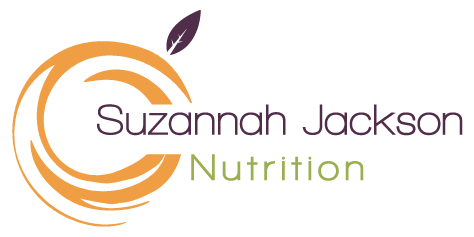It’s never too late to get healthy
Over the last few decades, life expectancy in the developed world has been steadily increasing, while healthy life expectancy has been decreasing. That means that you might expect to live longer but with a poorer quality of life.
Luckily there is lots you can do right now to prevent some of the illnesses that we relate to older age. It’s never too late to make impactful changes!
Start your preparation as early as possible
Diet and lifestyle changes play a big role in how well you age and how long you live. Even if you have a genetic predisposition for serious illness, such as cardiovascular disease, cancer or Alzheimer’s, it will not manifest if the gene is not expressed.
Gene expression is affected by diet and lifestyle choices. So, the sooner you introduce healthy habits, the better.
The role of nutrition is often underestimated. But nutritional interventions can have amazing results – we now know that the right diet can reverse not just type 2 diabetes, but also cognitive decline. Provide enough energy (i.e. calories) and the right nutrients, and your symptoms and quality of life could be significantly improved, even if you are of advancing ages. In later life, eating a really good diet is more important than ever.
Real food – more important than ever
As you age, you lose lean body mass – muscle – which leads to a reduced metabolic rate. That means you burn (and need) fewer calories than before. The loss of muscle tissue can be a sign of less activity. It also means that staying active gets harder – a vicious cycle.
So, older people need fewer calories but have the same nutrient requirements as younger adults. This and the fact that appetite declines with age mean that older adults must take in the same amounts of vitamins, minerals and other nutrients as they used to, only with less food. In short, good quality food has never been more important!
Processed foods and ready meals are not nutrient-dense – quite the opposite. They tend to be high in sugar, salt and trans fats or vegetable oils while lacking fibre, phytonutrients, vitamins and minerals.
Everyone – of any age – needs real food. For older people there really is no alternative. Real food is the kind of food your grandmother would recognise: meat, fish, seafood, eggs, vegetables, fruit, nuts, seeds and whole grains. The sooner you switch to real food only, the better the foundation your health depends on is going to be.
Malnutrition
Malnutrition is common among older people who live in the community, i.e. not in care homes or assisted living, where food is provided and staff monitor food intake. Even younger people who live alone often say that they are finding it hard to motivate themselves to cook for one.
Add to that a lack of appetite – common in the elderly – and impaired mobility – and it is not surprising that many skip meals. It will be much ‘easier’ to eat a ready meal, or even not at all.
Malabsorption
What you eat is one thing, whether you absorb it is another. As you age, stomach acid production declines. For a long time, this was thought to be a ‘normal’ symptom of ageing, but it is not. There is no reason why older people should produce less stomach acid. And yet it is a common problem.
Low stomach acid levels can be a result of dehydration, infection with the bacterium Helicobacter pylori, or the use of acid-blocking medication. Also, stomach acid secretion is an energy-intense process, and the diet might just not supply enough calories for adequate stomach acid levels. As a result, folate, vitamin B12, iron, calcium and beta-carotene cannot be adequately absorbed.
A 2001 paper (Russell, 2001) estimated that 24 per cent of adults over 60 suffer from atrophic gastritis. In those over 80, more than 40 per cent are affected. Atrophic gastritis is a condition in which the stomach lining is chronically inflamed. This is not just painful, but can also have catastrophic consequences, resulting in stomach ulcers or cancer.
One symptom of the condition is declining stomach acid production. Atrophic gastritis has been linked with H. pylori infection. Researchers were able to show that in many cases, it could be reversed by eliminating the infection. This does not happen overnight but takes decades to develop. It is therefore worth getting tested for H. pylori if you feel that something is not right with your stomach.
Acid-blocking medication can make the problem worse. Having said that, it is crucial that you do not just stop taking the drug, if you are already on them (or any other medication for that matter). You must speak to your doctor about it.
Low stomach acid levels do not just affect what goes on in the stomach, but also what happens further down in the digestive tract. It makes the upper intestine slightly acidic, too. If that is not happening, sometimes the wrong bacteria can settle there. Those bugs can then absorb the nutrients meant for you – thus depriving you of them. They will thrive of your food and proliferate. This is called ‘small intestinal bacterial overgrowth’, a condition that can promote malabsorption, too.
So what can you do? Here are my top tips for a healthy old age
My tips to age better – starting today!
- Eat real food.
Ready meals and fast food just don’t cut it. You need all the nutrients you can get, especially if your appetite is not what it used to be, and your servings are small. Buy ingredients rather than meals and your body will thank you for it. A slow cooker is an inexpensive gadget that makes cooking a doddle, even if you think you can’t cook. It turns even the more affordable, tougher cuts of meat into melt-in-the-mouth stews. Batch cook and freeze a couple of portions. That way, you can stock your freezer with home-made ready meals.
- Eat enough calories.
That is easier said than done, especially if you do not have much of an appetite. The solution is fat. Fat has more than twice the calories of protein and carbohydrates and is a natural flavour enhancer. It is also required to absorb the fat-soluble vitamins vitamin A, D and E. Sadly, fat is unfairly vilified and therefore restricted in official dietary guidelines. The general advice replace saturated fat and cholesterol with man-made vegetable oils has since been found to be detrimental. Vegetable oils are pro-inflammatory, harmful to cognitive health and may actually increase the risk of cardiovascular disease. Natural fats that humans have consumed for millennia, such as butter, lard and coconut oil, are preferable. To maintain good cognitive and mental health, you need good amounts of the omega-3 fatty acid DHA, which is predominantly found in oily fish. 2-3 servings per week are sufficient.
- Reduce the sugar in your life.
Follow a diet with a low glycaemic load. Don’t worry, you will barely miss a thing. It means very little sugar and more carbs from vegetables than grains, but because it consists of real food and allows healthy fats, meals are tasty and filling.
- Unlike iron from plants, iron from meat does not appear to be affected by low stomach acid levels and is absorbed anyway.
- Try green smoothies
These are a delicious way to benefit from the vitamin C, antioxidants and enzymes of raw plants, without having to chew them. They are easy to prepare and consume.
- Consider supplements
Vitamin D is a nutrient of concern for all ages. You make most of your vitamin D within your skin under the influence of sunlight. Anyone living in the UK where sunlight is scarce in winter, is likely to be deficient. If you are older and perhaps less mobile, you may have even fewer opportunities to enjoy the sun. Yet, vitamin D is a crucial nutrient for bone health. It is needed for the absorption calcium – which may already be limited if stomach acid levels are low. Vitamin D is also essential for a healthy heart, cholesterol metabolism, the brain and more. Unfortunately, there are not many good food sources for it, but oily fish, red meat, liver and egg yolks do contain some. It is possible to get tested and supplement accordingly. Good quality dietary supplements may also help improve the absorption of vitamins and minerals or top up nutrient levels from food. Just make sure to get advice from someone who is trained in the use of dietary supplements. They can interact with medication, and different products are not absorbed in the same way.
Just because you are getting older doesn’t mean that you have to put up with illness. Healthy ageing is possible and achievable. If you’re still young, start now. If you are already of an advanced age, start now. It’s never too late to get healthy.
Robert M. Russell, Factors in Aging that Effect the Bioavailability of Nutrients, The Journal of Nutrition, Volume 131, Issue 4, April 2001, Pages 1359S–1361S

